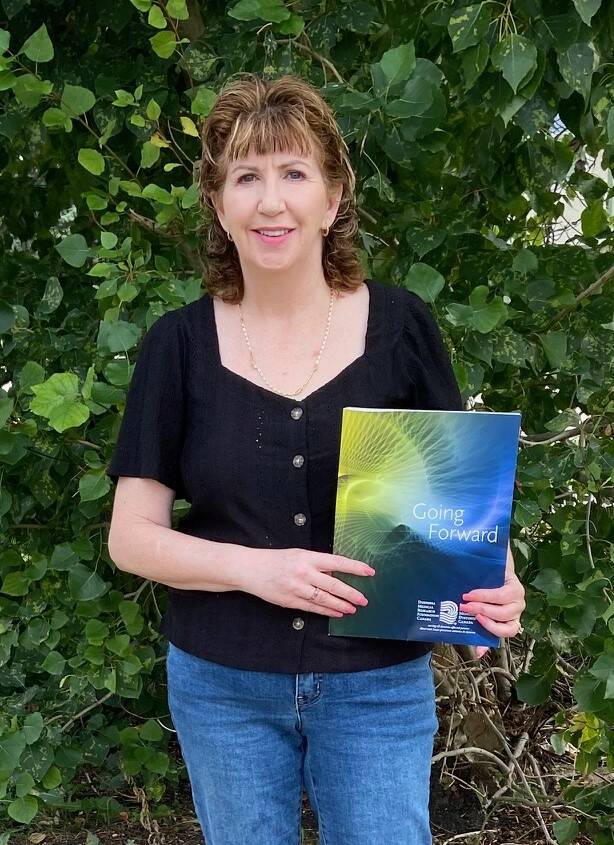‘Dystonia doesn’t kill you, but it makes you want to die’
Free symposium on rare neurological condition coming up Oct. 19
Advertisement
Hey there, time traveller!
This article was published 09/10/2024 (432 days ago), so information in it may no longer be current.
Since Jennifer Lovell was a child, dystonia has been a part of her life. But it wasn’t obvious at first.
Cramps, spasms, stiffness, headaches — odd twinges of muscle that she usually ignored. It wasn’t until she was 35 that she was diagnosed with the condition by a movement disorder specialist, after countless years of pain.
According to the Dystonia Medical Research Foundation of Canada (DMRFC), Dystonia is “a neurological disorder that causes excessive, involuntary muscle contractions.” It can affect any area of the body — from your face to your feet — and is characterized by repetitive, uncontrollable muscle spasms. They’re often painful and can make it hard for people with the condition to control their movements.

Supplied photo
Jennifer Lovell was diagnosed with dystonia, a rare neurological condition which affects the muscles, when she was 35. Now, 20 years later, she works hard to advocate for others living with the condition in Manitoba.
“If I keep moving, it’s all OK,” Lovell said. “But the minute I’m still, the muscles tighten. So I keep moving all the time.”
“You may not see it, but there’s a war going on inside my body … constant pulling, twisting. The pain for me is overwhelming, but not everybody has pain,” the 55-year-old continued.
Lovell said that before she was diagnosed she wanted to scream from the rooftops: “I’m not crazy!”
By then, the progression of the condition had already forced her to resign from her job and, as she was raising two teenagers at the time, the financial loss was substantial. If one of the countless doctors and medical specialists she had identified the condition or had not dismissed her pain thinking it was due to something else, she could have gotten support much earlier.
These days, Lovell is president of the local DMRFC support group and organizes fundraisers and educational resources for those living with the condition in Manitoba. She’s been president since her third meeting, she said.
She describes her motivation as “simmering rage.”
“I do fear the day that it becomes noticeable, like so many others,” she said. “And so I figure, while I am well and motivated, this is my time to get to work just in case it disables me. I want to do as many things as I can with the time I have.”
Dystonia is rare, affecting just 300,000 people in the United States and Canada, according to the DMRFC, and it can develop in childhood. Although it affects the muscles, it’s a neurological condition. It’s genetic, and someone can go their whole life without being diagnosed. Half of Lovell’s family has showed signs, she said.
And, because the condition — “illness, disease, we don’t even know what to call it yet,” Lovell said — affects people in a spectrum of different ways with varying intensities, it’s difficult and expensive to treat.
Painkillers such as opioids, which is what Lovell uses, are hard to access due to the ongoing addictions crisis and botox, another common treatment, isn’t covered by many benefit plan. Lovell has had to fight to continue using painkillers, going as far as to explain, frankly, that she would look into assisted suicide if she was cut off entirely.
“Dystonia doesn’t kill you, but it makes you want to die,” Lovell said, echoing a lightheartedly catchphrase often shared in the local dystonia support group.
In addition to co-ordinating events and providing a voice for the disease, Lovell has spent countless hours on the phone providing support and advice to people in similar positions to her.
“Just letting people know, ‘I know where you’re at. I know how you feel,’” she said. “And that goes a long way. If there’s anyone that can tell you all the misery of it, I’m right there.”
The DMRFC is holding a dystonia symposium event on Saturday, Oct. 19, from 1 to 4:30 p.m. at Deer Lodge Centre (2109 Portage Ave.). featuring speakers Dr. Douglas Hobson and Jenell Chorney. While registration is free, seats are limited and participants are encouraged to secure a spot before Oct. 18 at dystoniacanada.org/upcoming-events/winnipeg
The local chapter also organizes a fundraising walk, called Freedom to Move, every June. To learn more about the condition, visit dystoniacanada.org

Emma Honeybun is a reporter/photographer for the Free Press Community Review. She graduated RRC Polytech’s creative communications program, with a specialization in journalism, in 2023. Email her at emma.honeybun@freepress.mb.ca
Our newsroom depends on a growing audience of readers to power our journalism. If you are not a paid reader, please consider becoming a subscriber.
Our newsroom depends on its audience of readers to power our journalism. Thank you for your support.




